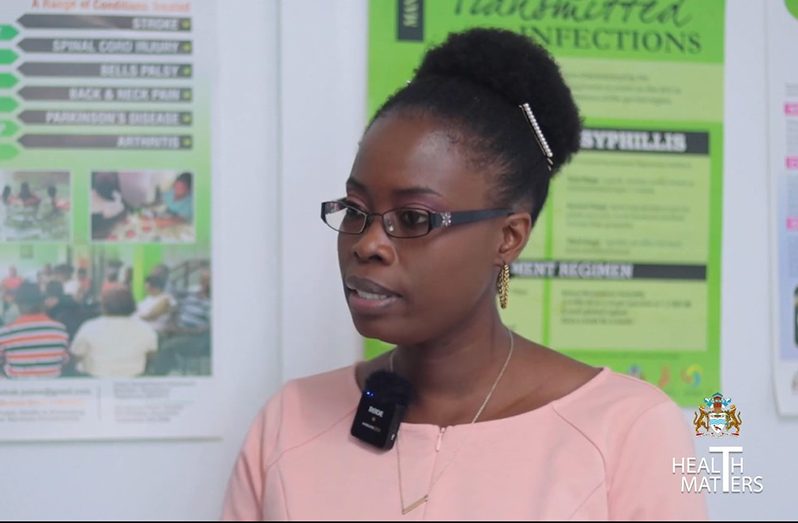– Elderly Health Unit Coordinator says
THE Elderly Health Unit of the Ministry of Health (MoH) has been working tirelessly to enhance health and care services for the elderly. By means of their elderly health programmes, they aim to secure a bundle of vital health services specifically for the elderly.
In a recent social media programme under the title, “Health Matters”, done by the MOH, Elderly Health Unit Coordinator, Dr. Melissa Dehaarte, related that the unit is constantly training health care workers on how to care for the elderly, among other things, to better the services offered to them.
“We work closely with our healthcare workers to build their capacity through training and it is ongoing throughout the year to ensure that they’re equipped to provide services to our elderly persons within the primary health care settings…” she said.
She related they are continuously working to not only educate and build the capacity of primary health care staff, but they are hoping, in the future, to have scholarships, certificate programmes and postgraduate programmes.
This will better equip doctors, social workers and all levels of staff in whatever capacity they might encounter an elderly person, to ensure that they are knowledgeable to provide mental, social and physical care for that person.
“So we want to establish a curriculum within those training programmes, whether they be nurses, doctors, so everyone has that knowledge and of course that will be ongoing,” she noted.
The unit coordinator said that they are also working on an extensive communication strategy aimed at further educating the public on how to care and better manage the elderly.
“We will be working in house with our own health promotion team and involving our stakeholders such as radio, television, newspapers, to better educate the public, specifically caregivers,” she related.
The Elderly Health Care programme, Dr. Dehaarte said focuses on public sensitisation, to ensure that persons are educated on the issues that may face older adults within communities, the changes that they experience and how to better manage them.
Further, Dr. Dehaarte noted that they are working closely with the Ministry of Human Services and Social Security (MHSSS) and their safety net programmes, to ensure that they monitor and support long-term care facilities for the elderly.
Aside from their community-based platform work, she related that they are working along with non-governmental organisations (NGOs) to create elderly clinics throughout the regions of Guyana.
These clinics, she explained, will have a more integrated look as well as assessment tools being provided to all workers for them to zone in on mental issues such as Alzheimers, forgetfulness, and other degenerative issues that may happen concerning the elderly’s mental health.
Apart from this mental aspect, the clinics will also have strengthened systems to ensure that persons preserve their capacity of physical function.
She said that the unit is hoping to, at some point in time, have an expansion of staff to ensure coverage in all regions, where they strengthen community work and set up support and information groups, to give caregivers support, as well as to strengthen the referral system they have for any health and social issues.



.jpg)








